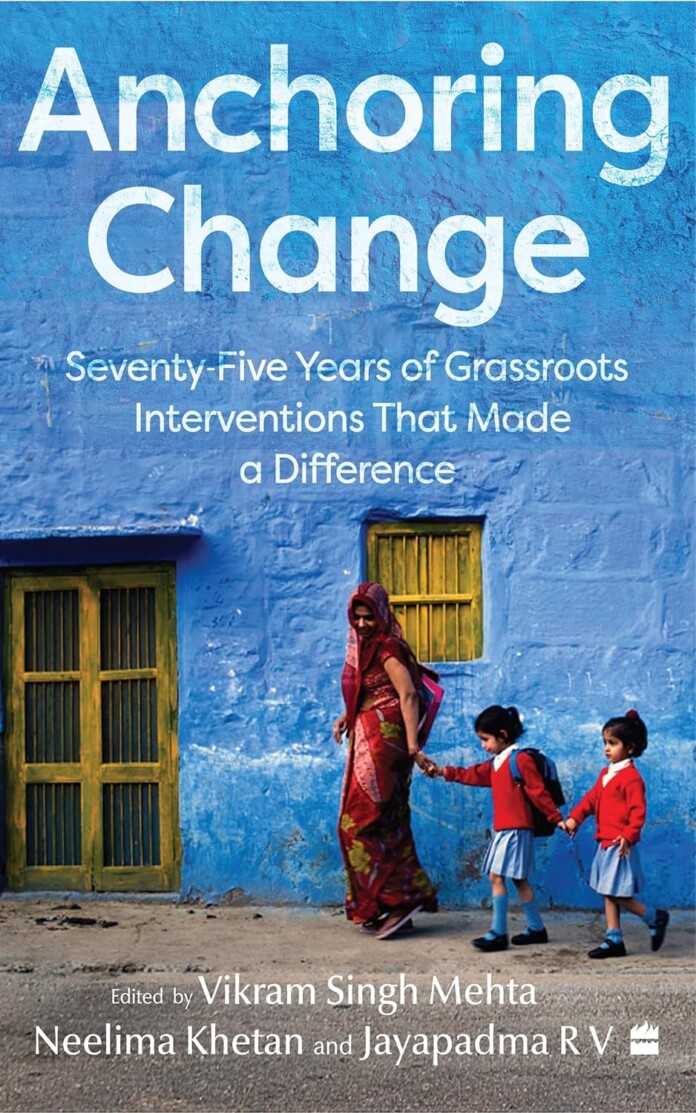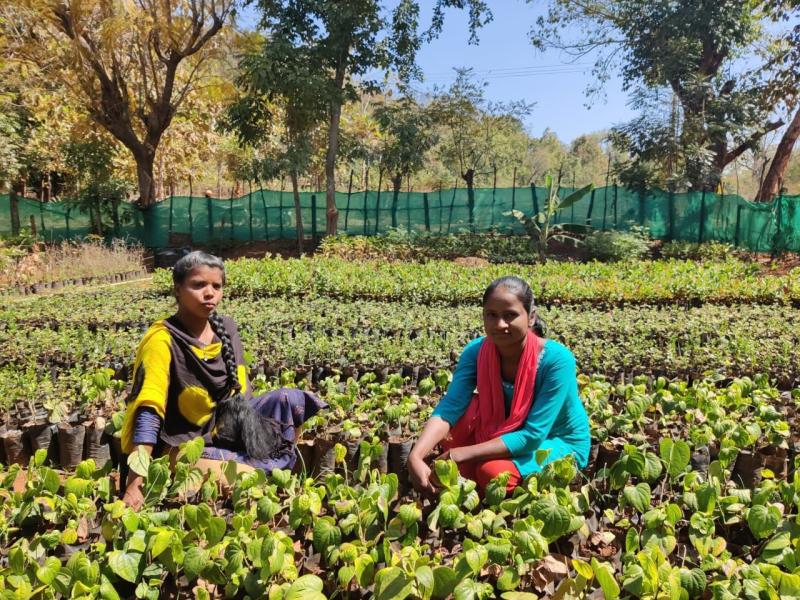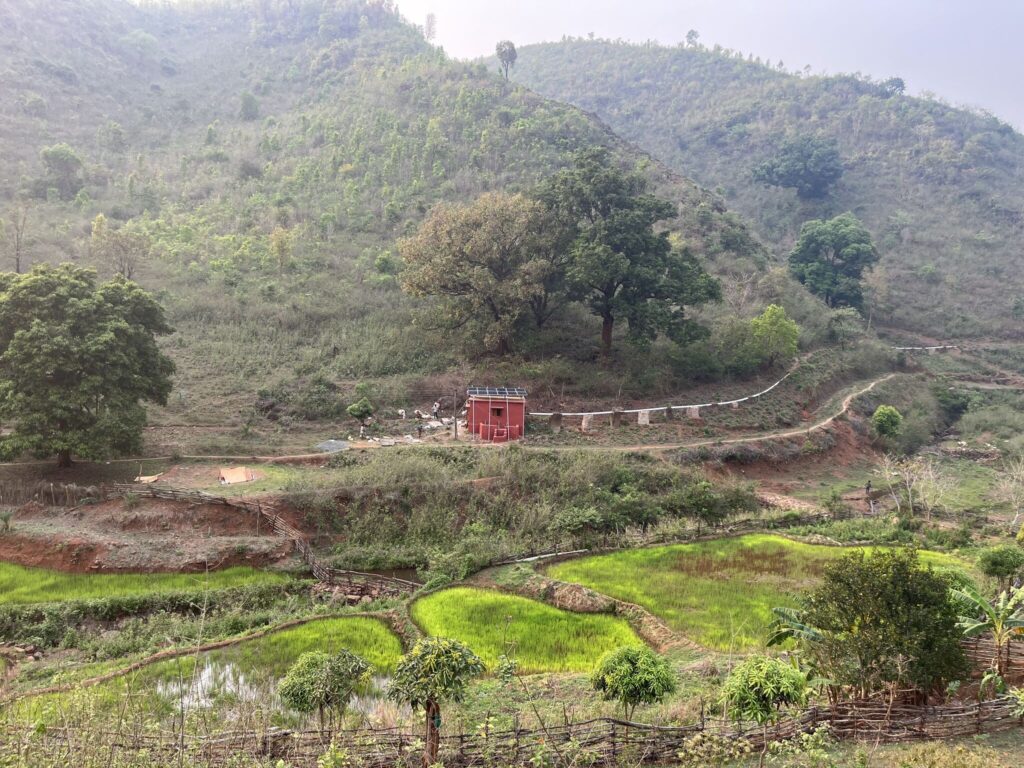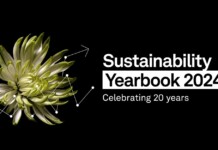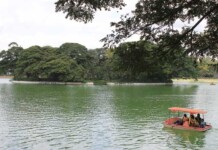Gram Vikas emerged from the work of a group of university students from then Madras, among the Kondh adivasi communities in Ganjam district of southern Odisha. Invited by the district administration in 1976 to set up a dairy unit and promote commercial dairying among the rural/adivasi communities, the group found that earning money from animal husbandry was not among the priorities of the villagers. Gram Vikas decided to start by understanding their needs and supporting them to claim their legal and social entitlements, and over time participate in inclusive and dignified development processes. This became the core of Gram Vikas’ work, and over the last forty-three years, it has impacted 1,10,000 households in 599 gram panchayats of twenty-seven districts in Odisha and Jharkhand.
In the late 1970s, Gram Vikas addressed Adivasi villages’ healthcare and literacy needs in Odisha’s Ganjam, Gajapati, and Kalahandi districts, through services, awareness and access. A residential school to provide quality education to Adivasi children, Kerandimal Middle Education School was started in 1982, and later expanded to Gram Vikas High School. Based on this experience three more residential schools were set up in remote locations of Ganjam, Gajapati and Kalahandi by 2003. Campaigns against moneylenders and afforestation efforts aided Adivasi villages look towards longer term development. Early community mobilization, based on Sarvodaya principles and Paulo Freire’s conscientization, aimed at building local capacities.
The failed attempt at promoting dairying led to a shift toward promoting biogas as a renewable, eco-friendly cooking energy source. In collaboration with the Odisha government, Gram Vikas initiated a pioneering non-government organization-government partnership between 1982 and 1993. The biogas program reached over 54,000 households in almost 6,000 villages across twenty-five districts in Odisha. Gram Vikas adapted technical processes to local conditions and trained around 6,000 rural individuals as ‘barefoot technicians’ allowing the organisation it to withdraw and focus on other development challenges of rural communities.
Towards the end of the first two decades of work, Gram Vikas attempted to integrate its experiences with the ‘social mobilization’ and ‘techno-managerial’ approaches into a holistic process of development. The Rural Health and Environment Programme in the mid-1990s was developed to become Gram Vikas’ flagship intervention, with water and sanitation as the entry point. The principles of MANTRA Movement and Action Network for Transformation of Rural Areas—which emerged from lessons learnt over these first two decades—have guided Gram Vikas’ work since the early 2000s.
Water and Sanitation for Inclusive Community Development
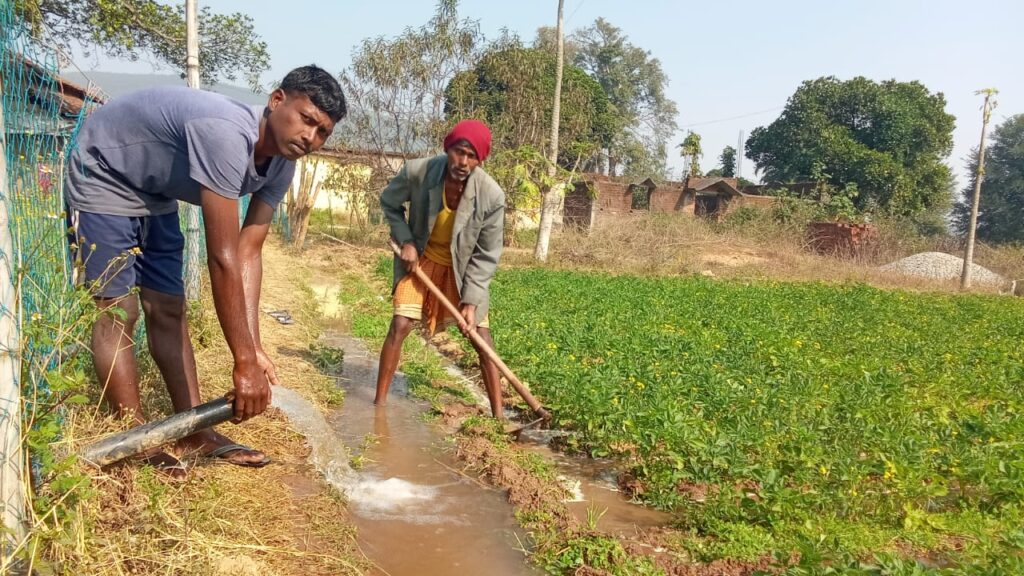
Improper feces disposal and unsafe water caused widespread health issues in villages, affecting all, regardless of wealth or caste. Women and girl children were disproportionately affected, with the burden to fetch water and inadequate sanitation. Gram Vikas initiated a community-owned water and sanitation programme, uniting villagers to solve a shared problem, empowering marginalized communities to jointly manage village institutions and resources, and fostering equitable negotiations with more powerful groups. The following institutional and infrastructure systems were established in the participating villages:
- Twin-pit pour flush toilets and bathing rooms for every family
- A piped water-supply system with a local source (borewell, sanitary well or spring), pumped using electric or solar power or gravity flow into an overhead water reservoir or sump and distributed through two or three taps per family
- A village committee handling the ownership and management of the water and sanitation system
- A village corpus fund with contribution from all families to ensure full coverage at all times and
- A maintenance fund managed by the village committee to pay for the regular upkeep and repairs of the piped water-supply system
The integrated water and sanitation programme was built on the five principles collectively known as MANTRA. Its approach has since become the basis of Gram Vikas’ work in all sectors. The five principles are – ‘All or none’ – 100 per cent inclusion; ‘Share costs’; ‘Take responsibility’; ‘Participation of all’, ‘Inbuilt financial sustainability’.
By September 2021, Gram Vikas’ water and sanitation program covered 84,000 households in 545 gram panchayats across Odisha and Jharkhand. Recognized nationally and internationally, studies affirmed its efficacy. A 2015 study by Esther Duflo estimated a 30-50% reduction in treated diarrhea episodes. A 2019 study found increased toilet coverage (85% vs. 18%), adult toilet use (74% vs. 13%), and child faeces disposal (35% vs. 6%) in intervention villages. An internal survey from 2018 to 2020 assessed infrastructure and institutions. It revealed 75% of households had toilets and bathing rooms, with 92% having piped water access in Gram Vikas intervention areas.
The survey allowed for a better understanding of factors contributing to the lack of full functionality of village and household infrastructure. In the piped-water system these included failure of the water source, seasonality in water availability, issues with the village electricity supply, inadequacy of a pipeline to cover all households and physical expansion of the village that rendered the system non-functional in the expanded areas. Failure of household-level sanitation infrastructure was caused by damages from natural disasters, deterioration of the structures built and a lack of repairs, as well as insufficient motivation among households to continue to use the facilities.
Gram Vikas’ approach to integrated water and sanitation for every household in a village was initiated two decades before the national government started its mission to end ‘open defecation’ in villages. Its experiences contributed to the formulation of the Nirmal Bharat Abhiyan, a precursor to the Swachh Bharat Mission launched in 2014. Five years later, the government launched the Jal Jeevan Mission with the aim of providing a functioning tap connection to every rural household. Gram Vikas was a member of the Working Group of the Planning Commission on Rural Domestic Water and Sanitation for formulating the Twelfth Five-Year Plan (2012–17), and later a part of the National Task Force set up in 2019 by the Jal Jeevan Mission to review the implementation of rural drinking-water schemes.
Looking ahead
The challenge before Gram Vikas is to scale its successful experience of building people’s self-governance institutions to the gram panchayat level to help them become true citizen bodies. The Water Secure Gram Panchayat Programme is currently being developed to build upon the work done in water, sanitation, livelihoods, technology and building village institutions, and uses natural resource management as the fulcrum for promoting the engagement between citizens and local governments.
Gram Vikas also has to strengthen its work with younger village inhabitants who have a distinct identity and voice in community affairs. Migration for work to locations that pay better wages has emerged as a preferred choice for young men and women. Whether or not to migrate for work is an individual decision. A meaningful intervention would ensure that no one is left without a choice and having to resort to migration out of distress. The primary focus needs to be on adequate and appropriate livelihood opportunities in the villages. The Safe and Dignified Migration Programme has been initiated to address these issues and enable better livelihoods for rural households in six districts of Odisha.
Gram Vikas has managed to stay ahead and remain a pioneer in many ways driven by its core values of inclusion, equity and dignity. The ability to be relevant to rural communities comes from being embedded in the community, seeing people as the most important asset, being open to new ideas and different viewpoints, being transparent about decisions, valuing collaboration at all levels and being flexible enough to respond with agility to changes in the environment.


